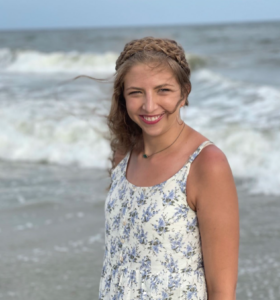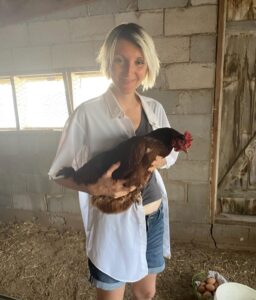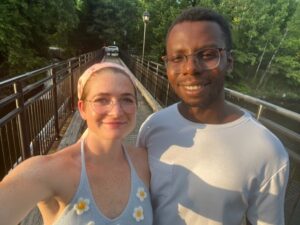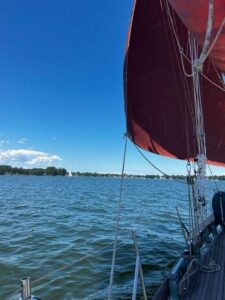
Hello, my name is Rachel Beardsley and for my practicum I have been working with the Citywide Inclusive Sanitation Technical Assistance (CWIS TA) Hub to help record and report the experiences developing their Water Supply and Sanitation Master Plan which is used for cities to plan for years to come and to guide efforts and investment. For my practicum, I wanted to take on a topic I knew little about, sanitation systems, grow in my research skills, and create deliverables with the goal of informing programs and policies. This has been a very rewarding time as I have learned a lot about sanitation systems as a whole and management of the sanitation chain as well as developed skills such as those in making effective presentations and research. I also grew a lot in my ability to create research for programs without a predestined research plan. In the past when I have done research, I was attached to a program that was intended to be researched and had a clear methodology and research strategy prepared. For this project, the development of the masterplan was done without this paper, or any papers, in mind. Nevertheless, I am glad I got to work on this project because it helped me learn to adapt to roadblocks I will likely face in the future. This practicum helped me gain new skills and taught me more about sanitation holistically. I am very grateful that I had the opportunity to assist the CWIS TA Hub this summer.
Coming up, I will deliver my presentation on how to improve master plan development to the African Development Bank soon. I am excited to share my findings and hopefully provide useful knowledge to experts that will inform their work. I will also be finishing up my manuscript, disseminating my findings, and looking into publishing.
Before I end, I would like to give a special thanks to Dr. Manga and Dr. Najib who were both incredibly kind, thoughtful, and helpful in developing my skills during this practicum. I am incredibly lucky to have worked with them.
-Rachel B.



